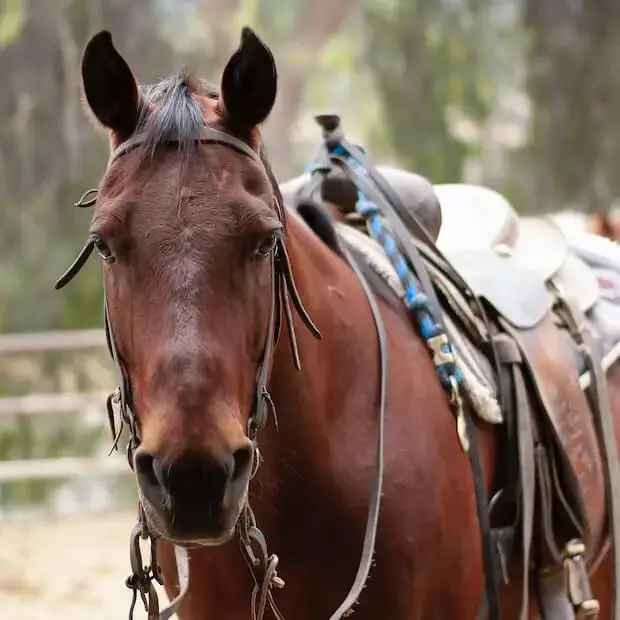Introduction
The performance, health, and general well-being of horses are directly impacted by proper nutrition, which is a crucial component of equestrian care. Horses need a balanced diet to support their physiological processes and satisfy their energy needs, just like people do. There are many different aspects of nutrition’s impact on equestrian performance, including the need for energy, the growth of muscles, stamina, joint health, and general body condition.
This blog will address the critical role that nutrition plays in increasing equine performance as well as the essential nutrients, feeding procedures, and effects they have on horses’ athletic prowess.
Horse owners, trainers, and caretakers may successfully assist their equine athletes, encouraging their longevity and success in a variety of sports, by prioritizing and understanding the role of nutrition in equine performance. We shall examine the particular facets of horse nutrition and how they affect performance in the sections that follow.
We will dig into the significance of each component in enhancing horse performance, from energy requirements and muscle growth to stamina, joint health, and body condition.
Understanding Equine Nutrition
Understanding the fundamental nutritional needs of horses is crucial before exploring the connection between nutrition and equestrian performance. Horses are herbivores that have developed as grazers with dietary adaptations to include a lot of fiber. Their digestive system is built to effectively consume fibrous plant matter.
Energy needs:
The most important nutrient for equestrian performance is energy. Energy is needed by horses for physical exercise, maintenance, and fundamental metabolic processes. In a horse’s diet, lipids, carbohydrates, and to a lesser extent, proteins, are the major sources of energy.
Proteins:
In horses, proteins are crucial for tissue development, maintenance, and repair. They are essential for immune system health, enzyme and hormone synthesis, and muscular growth. For peak performance, high-quality proteins that include critical amino acids are required.
Vitamins and Minerals:
Horses need a variety of vitamins and minerals to maintain healthy physiological function. These include calcium, phosphorus, magnesium, zinc, and selenium as well as the vitamins A, D, E, and B-complex. A healthy diet rich in vitamins and minerals promotes strong bones, a strong immune system, and general well-being.
Fiber:
Fibre is an essential part of a horse’s diet. It adds mass, promotes gastrointestinal motility, and aids in maintaining the digestive system’s health. Horses’ main sources of fiber are forages like hay and pasture.
Nutrition and Equine Performance
Body Condition:
To ensure optimal performance from horses, it’s crucial to maintain a healthy body condition score. Overweight and underweight horses may have difficulty with endurance and agility, respectively, while too-thin horses may not have the required energy reserves to function at their best. For optimum performance, a well-balanced diet that satisfies energy needs while taking into account bodily condition is essential.
Muscle Development and Strength:
Proteins, amino acids, and other vital nutrients are important for the growth and maintenance of muscular mass in horses. Combining an adequate protein diet with the right kind of exercise encourages muscle development and repair, which enhances athletic performance.
Energy and stamina:
Horses’ main energy sources are carbohydrates and fats. A diet that supplies enough energy promotes endurance, stamina, and the capacity to put forth sustained physical effort. Before engaging in strenuous activity, boosting grain or fat consumption is one feeding strategy that might improve energy availability.
Electrolyte Balance:
Maintaining fluid equilibrium, neuron function, and muscle contractions all depend on electrolytes like sodium, potassium, and chloride. Horses sweat out electrolytes while they are working hard or when the weather is hot. Performance is supported by appropriate supplements and a balanced electrolyte intake that helps avoid dehydration, weariness, and muscular cramps.
Joint Health and Mobility:
Equine athletes are prone to joint stress and inflammation. Joint health and mobility. In order to maintain joint health and lower the risk of injuries or degenerative disorders that might impair the performance, nutrients including omega-3 fatty acids, glucosamine, chondroitin sulphate, and antioxidants are important.
Feeding Practices for Equine Performance
Forages:
A horse’s diet should be built on providing high-quality fodder, such as hay or pasture. Forages provide vital fiber, support gastrointestinal health, and satiate a horse’s grazing instinct. They also offer a slow-release energy source, promoting stamina and general health.
Concentrates:
To supplement a horse’s diet with more energy, protein, vitamins, and minerals, concentrates like grains and professionally made feeds are frequently used. It’s critical to select feeds that are suitable for the horse’s age, activity level, and unique nutritional requirements. To prevent gastrointestinal issues, feeds should be introduced gradually and fed in the proper quantities.
Supplements:
To address certain nutritional demands or inadequacies in a horse’s diet, nutritional supplements might be helpful. Before introducing any supplements, it is essential to speak with a veterinarian or an expert in horse nutrition. Based on the needs of each particular horse, they may assist in determining which supplements are required and assure optimum amounts.
Water:
A horse’s performance depends on having access to clean, fresh water. To support digestion, thermoregulation, and other physiological processes, horses must maintain proper hydration. Water consumption should be recommended during vigorous activity to make up for fluids lost via perspiration.
Conclusion
Nutrition is crucial to the performance of horses. To maximize athletic potential, a well-balanced diet that satisfies energy needs and promotes muscular growth, endurance, joint health, and general well-being is essential. In order for horses to perform at their peak levels, a balanced feeding program that includes high-quality forages, suitable concentrates, and tailored supplements is important.
Designing the best feeding regimens for equestrian athletes can benefit from a consultation with specialists in equine nutrition. We can support the long-term success, performance, and success of our equine friends by placing a high priority on nutrition.

